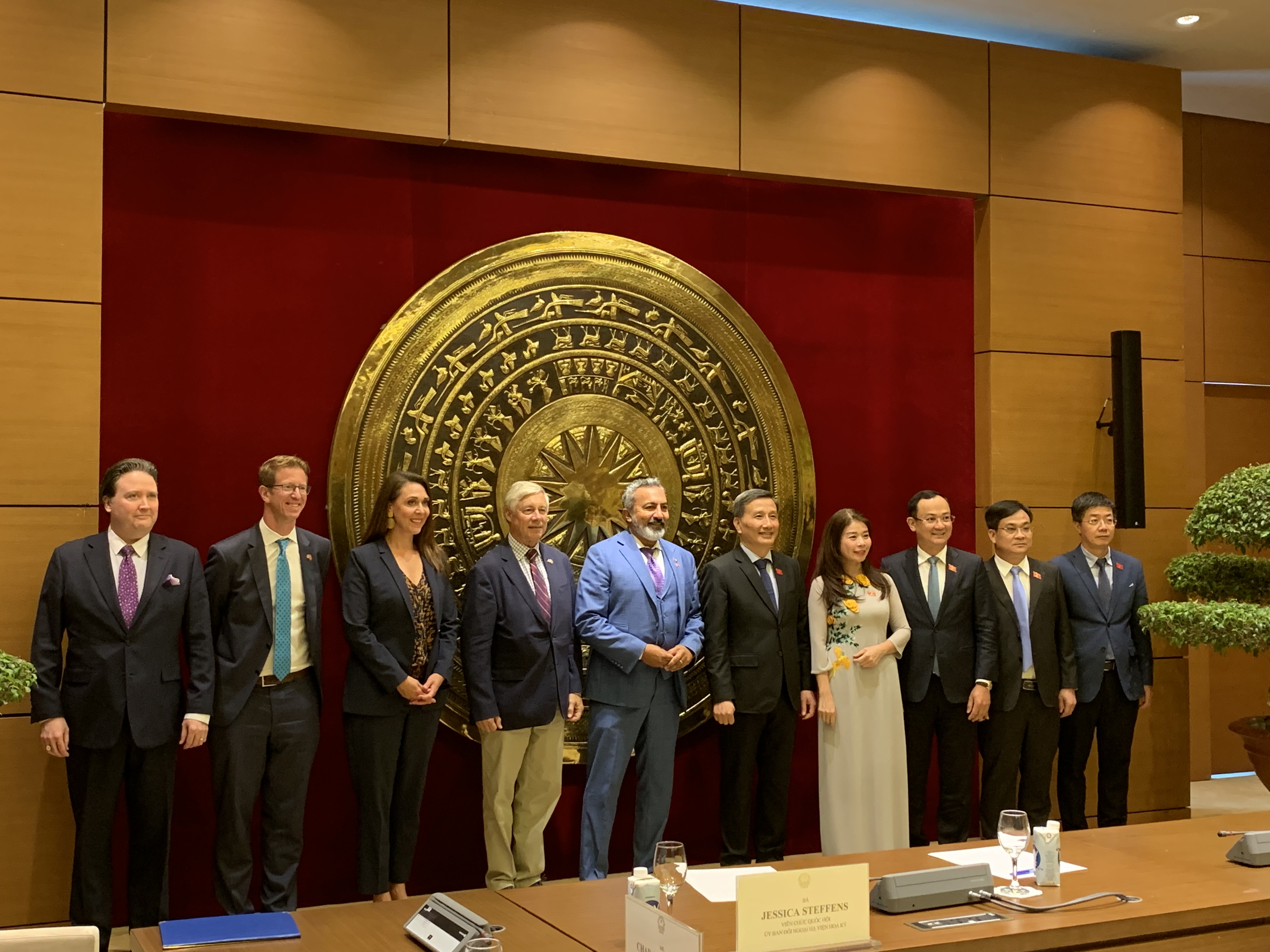Editor's note: Representative Ami Bera, M.D. (D-CA), the author of this article, serves as the Chair of the House Foreign Affairs Subcommittee on Asia, the Pacific, Central Asia, and Nonproliferation for the 117th Congress.
In October 2022, I had the privilege of leading a bipartisan U.S. Congressional delegation (CODEL) to Vietnam. This was the second time I led a CODEL to Southeast Asia as Chair of the House Foreign Affairs Subcommittee on Asia, the Pacific, Central Asia, and Nonproliferation – the last was in November 2021 – and the final trip I would lead in the 117th Congress. The visit came only weeks before the ASEAN Summits and East Asia Summit in November, when the region welcomed President Biden and his participation. This engagement with Southeast Asia from both Executive and Legislative branch officials reflects our whole-of-government commitment to the region.
I have long believed the Indo-Pacific is essential for U.S. national security and economic prosperity and commend the Biden Administration’s sustained high-level commitment to the region. As Subcommittee Chair, I have worked in a bipartisan manner to strengthen ties with our Indo-Pacific friends through hearings, legislation, and direct engagements. My conversations with high-level Vietnamese government officials – including members of the National Assembly whom I welcomed to Washington in September – during the trip reaffirmed the many areas in which the United States and Vietnam can deepen and broaden our partnership.
Cooperation on shared priorities
Today’s ever-changing world presents us with daunting challenges, but also opportunities for cooperation. Located at the heart of one of the world’s busiest waterways and with a dynamic, young population, Vietnam has emerged as a willing and able partner in advancing a free, open, resilient, secure, and prosperous Indo-Pacific. In particular, the United States and Vietnam can work jointly to address the harmful impacts of climate change, advance maritime security, and improve supply chain resiliency to further our shared interests.
From what we learned during the trip and the subsequent Subcommittee hearing I chaired on the challenges facing the Mekong Delta, the devastating impact global warming has had on the region and peoples’ livelihoods is clear. Rising temperatures and changes in the intensity of rainfall are destroying homes, infrastructure, and fisheries. Predicted rises in sea levels are also expected to increase salinity and floods in the Mekong Delta, which would damage crops in the most productive areas of the basin.
The United States provides aid to Vietnam through the United States Agency for International Development (USAID) to assist with natural disaster response, climate change impact mitigation, and to strengthen resilience. In the new Congress, we must continue investing not only in these efforts and opportunities for clean energy development, but also in multilateral forums such as the Mekong-U.S. Partnership to strengthen economic development and resource management.
Secondly, we need to further cooperate on defending maritime security to ensure the continued freedom of navigation in the [East Vietnam Sea.] We have seen over the years increasingly coercive and expansionist activity in these waters that has disrupted commercial shipping and fishing. We must continue to push back against such behavior and unlawful claims to offshore resources in these waters and preserve the international rules-based order in the [East Vietnam Sea].
The U.S. Coast Guard (USCG) has played an important role in assisting the Vietnam Coast Guard (VCG) in building capabilities and capacity through a variety of programs and training and educational opportunities. The United States has also bolstered VCG capabilities through equipment transfers, including high-speed patrol boats and two Hamilton-class high endurance cutters. We should continue to support such security cooperation, as well as ongoing engagements through U.S. diplomats and military liaisons in Vietnam, to strengthen our partnership in this space in support of regional peace and stability.
Last but not least, the United States and Vietnam should prioritize collaboration on strengthening our economic resilience. The economic fallout from the global pandemic and ongoing war in Ukraine have highlighted the urgent need to minimize our economic vulnerability to geopolitical shocks and trade disruptions. U.S. and Vietnamese policymakers should, along with other like-minded allies and partners, continue working to diversify supply chains, particularly for sectors and goods critical for national security.
Earlier this year, the Biden Administration and a dozen initial partners – including Vietnam – launched the Indo-Pacific Economic Framework for Prosperity (IPEF). Included in the framework is a commitment to strengthening our supply chains to ensure they can withstand economic shocks. As someone who has long supported deepening economic ties with our Indo-Pacific partners, I welcome this commitment and urge the United States and Vietnam to continue working with allies and partners in the region to strengthen supply chain resiliency to protect our economies and workers.
Looking to the next decade
The United States and Vietnam have come a long way since the end of the war nearly fifty years ago. From our robust economic relationship to the deep people-to-people ties, the bilateral relationship has blossomed since the normalization of relations in 1995. And as our countries celebrate the tenth anniversary of the U.S.-Vietnam Comprehensive Partnership in 2023, it behooves policymakers from both countries to take steps to further elevate this important relationship.
Leaders from both countries should consider commemorating this momentous milestone and all that our two peoples have accomplished by upgrading the partnership to the strategic level. The designation more accurately describes the ongoing collaboration and would further signify an enduring commitment to jointly address challenges of tomorrow through increased cooperation.
Additionally, I am committed to facilitating cooperation between U.S. and Vietnamese legislative bodies by creating opportunities for direct engagements and exchange of ideas. Despite the political rancor that often characterizes the U.S. Congress, there is widespread bipartisan support for U.S. partners and continued engagement in the Indo-Pacific. I look forward to working with my Republican colleagues in Congress and my counterparts in Vietnam to continue strengthening our partnership to tackle the most pressing challenges of the 21st century.


















































